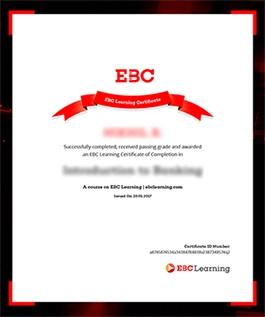Basics of Microeconomics - Part 1
Enrollment is Closed
This course covers the basic concepts of microeconomics and has been designed especially to cater to the law school curriculum. Economics is an extremely vital field of study, and since the development of multi-disciplinary pedagogy, the study of economics has gained relevance for law professionals, such as transactional lawyers and commercial lawyers. Another area where economics is equally relevant is in the practice of competition law.
This course discusses the basic principles and concepts of microeconomics and their relevance in market analysis, production, consumer behaviour and the significance of competition for a healthy domestic as well as global economy. The use of graphs, equations and examples make this course enriching and interesting.

Consumption is the sole end and purpose of all production; and the interest of the producer ought to be attended to, only so far as it may be necessary for promoting that of the consumer.
Adam Smith- 1. Introduction
- 1.1 Introduction
- 2. Demand and Supply
- 2.1 Concept of demand
- 2.2 Price elasticity of demand
- 2.3 Cross elasticity of demand
- 2.4 Concept of supply
- 3. Markets
- 3.1 Types of markets or economies
- 3.2 Market mechanism
- 3.3 Price restrictions and market equilibrium
- 3.4 Consumer and producer surplus
- 4. Consumer behaviour and utility
- 4.1 Consumer behaviour
- 4.2 Utility
- 4.3 Income consumption and Engel’s curve
- 4.4 Income and substitution effect
- 4.5 Price consumption line
- 4.6 Budget line
- 4.7 Utility maximisation and consumer equilibrium
- 5. Opportunity cost
- 5.1 Concept of opportunity cost
- 5.2 Positive and normative analysis
WHY TAKE THIS COURSE?
Knowledge of the basic or general principles of economics is relevant and important to understand how markets work, how firms work and influence the market and how competition is necessary for the functioning of a healthy economy, both at domestic and global levels. It is advisable for students pursuing law to be thorough with the fundamental principles of the economic system.
Economics is a very scoring and interesting subject, and this course has been developed and designed to impart thorough knowledge to students. Since this course has been designed to demystify the fundamental concepts taking into consideration the general syllabus followed in universities and law schools across the country, not taking this course may make you lose out on acing your university examinations, interviews and competitive examinations. This course will prove to be your guide on not only understanding economics but also build a strong foundation for subjects such as competition law and commercial law.
Instructors

Chavi Asrani
Chavi Asrani is a consultant at the Indian Council for Research on International Economic Relations (ICRIER), New Delhi and teaches Economics at the Fore School of Management and the University of Delhi, as a visiting faculty. She has about 9 years’ experience in academia and research. Her research interest is in economic policy relating to ICT for Development, and regulation and competition issues in digital markets. She has been associated with the Institute of Economic Growth and the University of Delhi. She has worked on research assignments for Meity, DoT and CCI. She has published in international and national journals. She has recently been awarded a PhD degree from IIT-Delhi, her dissertation on ‘Adoption and Diffusion of Digital Communications in India’ was recognised as the best doctoral work at the 12th ISDSI conference. She obtained a Masters in Economics with a Gold medal from Loyola College, Chennai. She has an undergraduate degree from Hansraj College, University of Delhi.

Economics is the study of how society manages its scarce resources.
Nicholas Gregory MankiwCertificate
Complete this course and exercises to earn a certificate. Share it with your friends, colleagues, and employers.*
*You must Subscribe to get a certificate.

Limit Reached or Trial Expired
You have reached the limit of 2 audit enrollments or your trial period has expired.

